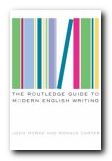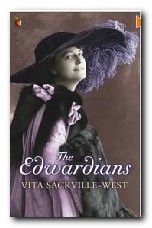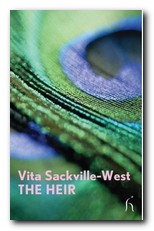General survey of literature in English 1960-2003
Modern English Writing is an introduction to contemporary literature, and a survey of ‘British and Irish’ writing from 1963 to the early 2000s. John McRae and Ronald Carter introduce the social and political background to the period – which will be useful for those people who haven’t lived through it. They give a brief account of the writer’s major works, discuss the themes that emerge, and highlight links and differences with their contemporaries. These expositions are punctuated by mini-essays outlining special themes which emerged during the period, and commenting on developments in language, culture.
 In the theatre they single out as major figures Stoppard, Orton, Beckett, and Pinter. Then coming more up to date, they make a strongly argued case for the importance of Sarah Kane, who committed suicide in 2000. However, it’s the novel which gets the lion’s share of their attention. The names go racing past with few surprises: Durrell, Golding, Murdoch, Amis (pere et fils). What’s interesting here is their mention of names who seemed important at the time but who are now largely unread or on their way to becoming forgotten: Anthony Powell, D.M.Thomas, Muriel Spark, Angus Wilson.
In the theatre they single out as major figures Stoppard, Orton, Beckett, and Pinter. Then coming more up to date, they make a strongly argued case for the importance of Sarah Kane, who committed suicide in 2000. However, it’s the novel which gets the lion’s share of their attention. The names go racing past with few surprises: Durrell, Golding, Murdoch, Amis (pere et fils). What’s interesting here is their mention of names who seemed important at the time but who are now largely unread or on their way to becoming forgotten: Anthony Powell, D.M.Thomas, Muriel Spark, Angus Wilson.
There is a group whose value is in the balance, but whose stock (I predict) seems likely to sink. Malcolm Bradbury, David Lodge, Doris Lessing, Margaret Drabble, and her sister A.S.Byatt
Of course it is difficult to see who if anyone from the recent crop will last. Formerly ‘big’ names from the 1960-1980s are already beginning to disappear, and if you look back further than that into the review pages of literary newspapers and magazines at who was being touted as important or the next big thing, your reaction is likely to be “Who he?”
The main novelty to emerge from the last half century or so has been the emergence of writers from other cultures (often former colonies) who have chosen to write in English. The most recent are all represented here: Timothy Mo, Salman Rushdie, Kazuo Ishiguro, Anita Desai, and Vikram Seth, whose novel in sonnet form, The Golden Gate, is undoubtedly a masterpiece.
As we move closer to the present, it’s more difficult to say who is worth listing and who not. The younger but now middle-aged generation of writers such as Ian McEwan are given as much space and attention as Nobel prizewinner V.S.Naipaul. But the authors pack in as many names from the world of contemporary fiction as possible, giving fair space to Irish and Scottish writers, as well as English. They also include mention of sub-genres such as detective fiction and children’s literature.
They finish off with a survey of poetry. Few surprises here: Larkin, Hughes, Heaney, and Harrison. But they manage to come smack up to date with a very appreciative piece on Simon Armitage.
Anyone could quibble about who is included or excluded, or argue about the amount of space devoted to a particular writer; but anybody looking for guidance or suggestions on literature in UK English in the last fifty years will find this useful.
There are also some useful appendices – lists of literary prizewinners, a late 20th century literary timeline, and a bibliography of further reading. It’s an excellent source if you need suggestions for further reading, or you are studying modern British literature.
© Roy Johnson 2004
John McRae and Ronald Carter, The Routledge Guide to Modern English Writing, London: Routledge, 2nd edn, 2004, pp.216, ISBN: 0415286379
More on literature
More on the novella
More on literary studies
More on short stories

